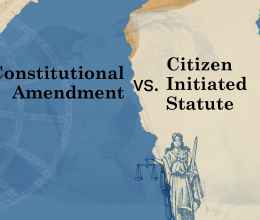Every two years, the Ohio legislature passes a budget bill to fund state government. It is at this time they also stick a variety of new laws and language into the bill that have nothing to do with the budget. Many times, it is clear jamming in such provisions is deliberately done at the last minute in order to avoid public testimony, input, and scrutiny. Such is the case now with HB 110, which they must pass before July 1st, the start of Ohio’s fiscal year. But, this session is far worse than past ones, as the Republicans in the General Assembly choose secrecy and darkness over transparency and accountability in numerous, impactful ways.
HEALTH CARE DISCRIMINATION
The most radical language added allows health care providers and insurers to discriminate against their fellow Ohioans for religious, “moral,” or “ethical” reasons. The practical implications may include Catholic hospitals refusing to admit LGBTQ Ohioans, health insurance companies refusing to pay for contraception, doctors blocking fertility treatments, and so much more. And, because this also includes non-religious reasons, discrimination against pro-choicers, Trump voters, meat eaters, and Michigan fans will all be fair game. In short, the Senate GOP’s adoption of this language will result in less health care access across the state when someone does not like who you are or what you believe.
ABORTION RESTRICTIONS
Over the past several years, GOP legislators have added more and more restrictions on abortion clinics and doctors in attempts to shut them down. Now, they want to require doctors who partner with ambulatory surgical facilities (hospitals and clinics) to provide abortions to live no less than 25 miles from the facility. The language also bans these doctors from receiving any compensation from, or teaching at, medical schools, state hospitals, or any other public institution. This is obviously a draconian ploy to censor and limit employment opportunities for these doctors and further harass health care providers. This and additonal mandates in the bill could potentially remove abortion care access in entire regions across Ohio, jeopordizing accessibility to abortion to numerous Ohioans.
LEGISLATURE INTERVENTION IN LAWSUITS
Legislators want to give the house speaker and senate president the authority to intervene, at any point, at taxpayer expense, in existing state lawsuits that challenge the constitutionality or application of many laws, including redistricting, passed by the Ohio General Assembly. One or both leaders would have unfettered power to intervene, with no vote or other input from other legislators. Similar language severely limits attorney general powers by requiring them to submit all settlement and related plans for such lawsuits for approval by a joint legislative committee. If future house speakers or senate presidents want to cause chaos in our courts, these broad powers will provide them with many opportunities.
DISABILITY ADVOCACY
Disability Rights Ohio provides much-needed advocacy, assistance, research, legal representation, and investigation on behalf of people with disabilities. They receive no state funding and act as Ohio’s independent recipient of federal funding and report to federal regulators regarding their crucial work. State lawmakers now want to create an oversight mechanism of this non-profit organization, threatening their independence and efficiency.
MEDICAL MARIJUANA
Medical marijuana has been a long-time saga in Ohio, with various and ongoing (and avoidable) missteps. HB 110 now includes language to prevent Ohio workers from suing their employers under Ohio civil rights law when their workplace bans their use of medical marijuana. To pass a statewide law allowing for it - then giving employers wide latitude to discipline employees for its legal use - is counterproductive and not aligned with individual or public health considerations.
ELECTION EDUCATION
New language shuts down the Citizen Education Fund maintained by the Secretary of State. It also forbids elections officials from partnering with outside, non-government sources who can provide funding for such things as voter education, registration, get out the vote efforts, poll worker training, and essentially any other election-related purpose. Ohio voters need more assistance, not less. But this ensures the latter.
Keep in mind, all of the above (and more) was added June 8th, three months after HB 110 was first introduced and after numerous public hearings. There are no more committee hearings. All these additions were done, at this point in time, to limit your opposition, input, concerns, and complaints.
HB 110 was approved by the Senate on June 9th after previously passing the House. Representatives from the House and Senate will soon start meeting to iron out differences between the versions each chamber passed. After they agree, HB 110 will be sent to Gov. DeWine.
We still have to time to fight these changes! The conference committee of House and Senate members will meet over the next couple weeks to deliberate. Gov. DeWine has line-item veto power (the power to remove provisions without vetoing the entire bill). Making your voice heard right now and in the next days is key! We'll have more on how you can take action in the coming days. Stay tuned.






